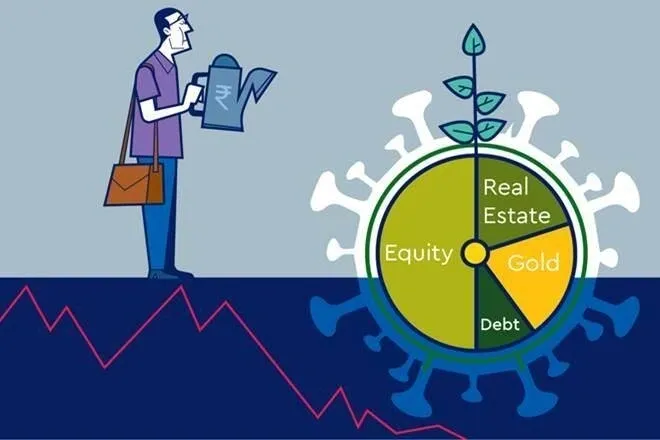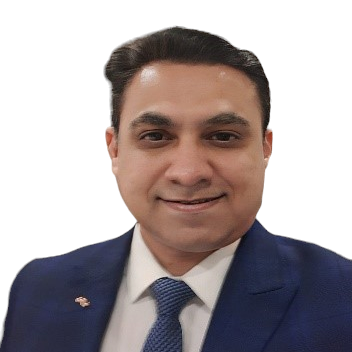This post is a slightly modified version of my original post on valuepickr a few months ago
You can read that here https://forum.valuepickr.com/t/towards-a-capital-allocation-framework/504/86
I have further built further upon some of the points there, especially those related to the behavioral and more personalized aspects of the asset allocation thought process.
The investing world is various shades of grey. Many a time debates are reduced to black and white opinions on diversification Vs concentration, high quality Vs unproven quality, buy and hold Vs momentum-based churning. Such debates are interesting to watch but they don’t give you any great insights into managing your own personal situation. Your personal situation will rarely fit into any of these perfectly defined silos, more often than not you will be running a variant or a combination of black and white approaches.
The beauty of the situation is that anyone not in a position where one has to stick to a stand and build reputation/business based on that approach has an inherent advantage. Why not go with a hybrid model without staying married to just one approach? The problem is that we are told by media/gurus to find one philosophy and stick with it even before we have experienced any success with the same. This is a narrative that we don’t need to fall for as a retail/non-professional investor. What works for Warren Buffet need not work perfectly well for you. Not everyone can bat like Sachin Tendulkar, even if many model themselves on his style and technique.
What do I mean?
My portfolio has concentration and diversification at the same time. 20% of my net worth is in one stock but I also have a 40% allocation to fixed income with the remaining 40% spread across 15-20 well researched stocks. It is not easy to slot this into a specific silo but who cares if it works well for me?
Some people aren’t comfortable with volatility by nature, concentration doesn’t work for them unless they have some operational control on the business too. Speak to promoters who have 70% of their net worth in their own listed business, they don’t see that exposure as equity since they have operating control. I bet my right hand the same Jeff Bezos or Uday Kotak would have a different allocation pattern if they weren’t running the show at their respective organizations. See how the people who started Infosys, Mindtree and HDFC Bank are investing after they gave up their operating manager role. A whole different world, I tell you.
Capital allocation should ideally be a function of who you are and how you see money. This is not some 20,000-foot life coaching bullshit; this is how most smart investors operate.
Those who are already wealthy often trade a bit of alpha generation for peace of mind, the incremental 4-5% return does not move the needle for them. If you are worth 100 Cr and have 30% invested in equity, an incremental 5% return on the equity component is 1.5 Cr per year. But the fixed income component already throws out ~4 Cr per year in a steady manner. For this very reason rich folks prioritize balance sheets over P&L. When you have something worth losing, the incremental return doesn’t look all that appealing if it leads to higher balance sheet risk.
But those who have aspirations of doubling their net worth every 3 years will try to squeeze out an additional 2-3% at every opportunity and also have a high equity allocation.
Over the past 6 months I have allocated more to fixed income than to equity but that is an outcome of my personal utility function that seeks to balance out my life. I have both investment income and operating income dependent on how the market performs, the world looks different to me though I’ve always had 60%+ in equities over the past 5 years (March 2020 included). My optimism on the market tends to get balanced out by my own specific investing context.
A general rule that works well is that the higher your alpha generation capability, the lesser can be your equity allocation when the risk reward is not in your favor.
If all you do are index funds/ETF that can deliver 10-12% p.a. over the medium term, you will most likely need higher equity allocation to create wealth. However, if you can generate a return of 20%+ p.a. through diligent stock picking, 50% might suffice during most times. When the bottom falls off the market, you can allocate more money and make more return than someone who is already sitting at 70% equity allocation.
This is one aspect of alpha generation that doesn’t get spoken about much. Dry powder comes in very handy when the shit hits the roof. Closer to the bottom of the market you are just a liquidity provider, you aren’t really a stock picker or a fund manager. When chase an unknown small cap stock when you can pick up Kotak Bank at a 40% discount?
The average reader of this post should think deeper and not go by the superficial gyan peddled by media. Media likes to simplify investing so that even a dart throwing monkey can take away a few basic rules. If you are reading this blog, chances are you are way smarter than that simply because investing well is a priority for you. Folks who don’t share your motivation are probably busy exploring a few more Instagram handles as you read this post.
Wealth management is still in the evolving stage in India, building asset allocation models is reduced to a few logical and predictable things like
- Age of the person
- Earning profile, cash flows, spending patterns and net worth
- Liabilities and events foreseen over the next 2-3 years
- Goal based planning over the long term

This works well in theory but is often sub optimal in practice.
My experience has been that the most important variable is the behavioral and attitudinal profile of the person towards money. This cannot be quantified; this can only be evaluated through a comprehensive exercise by a financial adviser who has both the IQ and the experience to be able to do so.
The average age of a wealth manager in India is 35 years and most of them have less than 20% of their own money invested in equities. Go figure how much of an advisor he/she can be when the market throws a tantrum. Some successful wealth managers are exceptionally talented people who can talk their way out of anything but cannot make sense of financial statements. Ask your wealth manager how to estimate what the cash flow must have been for a financial year based on the balance sheet and the P&L without showing him the actual cash flow statement. You are likely to get a glimpse of this exceptional talent right away.
The primary goal of any capital allocation framework should be that you always live to fight another day even if the market falls 50% and stays there for 3 years. Once this is ensured, the rest of the steps become subjective based on a variety of factors.
40% allocation to fixed income works differently at a net worth of 10 Cr than it does at a net worth of 50 lakh. Most of your expenses do not scale in line with your net worth. You are not going to be spending 5x the current amount on non-discretionary expenses if your net worth goes up 5x in the next 5 years. For this very reason, what is optimal for you is rarely optimal for the CEO of your company. In investing your individual context determines a lot of things.
When you go about deciding your asset allocation template, spend a good amount of time evaluating how you have behaved over the past in response to market conditions. How people say they will respond to a market correction is very different from how they actually respond to one.
Are you the kind of person who allocates more equity capital when the market is on a tear?
Are you the kind of person who feels like reducing equity exposure when the market falls 10%?
When you meet your wealth manager/financial adviser do you go with the intention of deriving value out of the interaction or to show off how knowledgeable you are?
Are you the kind of person who loses sleep when your net worth falls by 25+ lakhs during a market correction?
The ideal asset allocation framework for you is one that counterbalances your own sub optimal behavioral biases.
Do the work. You will not regret it.








